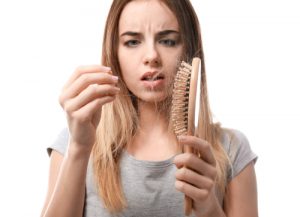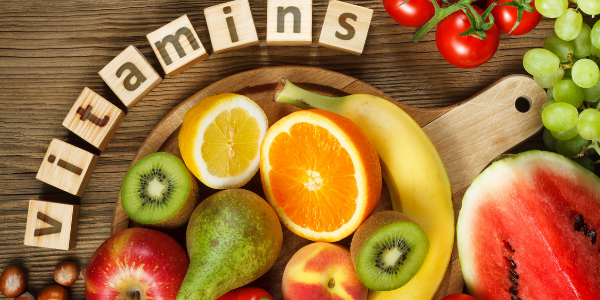When it comes to proper nutrition, eating a balanced diet can help provide you with the right combination of essential vitamins to help with your aging health. But, lack of a proper diet, and ultimately key nutrients, can have an adverse effect on your well-being.
Why does a Vitamin Deficiency Occur?
While a balanced diet may be a good starting point for proper nutrition, various factors can still lead men and women to experience signs of vitamin deficiency despite eating healthy. These types of deficiencies can be due to a number of factors such as illness, medication, or age, to name a few. As you continue to age, your body’s ability to absorb the vitamins and minerals found within your diet significantly decreases.
One of the most common reasons for these nutrient absorption issues with older adults is due to the natural decline of stomach acid due to aging. Stomach acid is necessary to break down our food and help our bodies absorb the nutrients, when this supply diminishes, absorption is affected and our body can struggle to get the necessary amount of nutrients from food. The primary nutrients that are not absorbed as easily when this happens are magnesium, iron, calcium, and B vitamins.
While a vitamin deficiency may be inevitable from your current diet alone, knowing some of the telltale signs of a deficiency is key to coming up with a solution before your health can be majorly impacted. That being said, here are some of the most common signs of vitamin deficiency and what you can do to stay healthy.
Symptoms of Vitamin Deficiency

When it comes to experiencing severe hair loss, some of the nutrients responsible for healthy hair include biotin, zinc, vitamin B, and MSM. If you notice severe hair loss, consider replenishing these nutrients by partaking in foods such as meat, nuts, and whole grains or consider taking a chronobiology-based supplement that contains these nutrients to help maintain healthy hair and nails.
To reverse the effect of biotin deficiency, consider adding vitamin B7-rich foods into your diet. These foods include organ meat, bananas, whole grain, egg yolks and sweet potatoes. Likewise, one food you should avoid or limit your consumption of is raw egg whites, as they contain avidin, an antimicrobial protein that reduces biotin absorption.
Although poor dental hygiene is the most probable cause for bleeding gums, vitamin C deficiency could also be the culprit. Notably, vitamin C plays an essential role in immunity, wound healing, and even heart health, but it also helps protect the cell from age-related damage. Besides bleeding gums, a vitamin C deficiency can show other subtle signs such as the following indicates:
- Rough or bumpy skin due to the key role the nutrient plays in collagen production.
- Corkscrew-shaped body hair due to defects that develop in the protein structure of hair as it grows, wounds on other parts of the body might take longer to heal in case of vitamin C deficiency.
- Bright red hair follicles, where the tiny blood vessels that supply nutrients to the area become fragile and break causing small bright red spots.
- Easy bruising, due to poor collagen production and weakened blood vessels.
It is important to note that your body cannot produce vitamin C on its own. Therefore, this nutrient can only be obtained through diet and additional supplementing to maintain enough levels of the vitamin. To replenish vitamin C levels in your body, consume adequate amounts of fresh fruits and vegetables, specifically citrus fruits are among the most popular sources of vitamin C.

Night blindness is a more severe symptom to a Vitamin A deficiency and if not treated in a proper amount of time, night blindness can escalate to xerophthalmia, a condition that could ultimately lead to blindness. Besides poor night vision, other signs of a vitamin A deficiency, that are more common, include dry skin, dry eyes, fertility struggles and infertility and frequent throat and chest infections.
If you notice symptoms of a vitamin A deficiency, consider incorporating foods rich in the nutrient into your diet, such as fish, dark leafy greens and dairy products, and check with your doctor for further diagnosis to confirm your deficiency level is not too extreme.
When it comes to aging health, vitamin D is of vital importance as it is responsible for aiding in bone health and strength since it helps the body absorb calcium. Commonly known as the sunshine vitamin, when your skin is exposed to sunlight, it makes vitamin D from cholesterol. Despite the body’s ability to make the vitamin, however, vitamin D deficiency is quite common. Because of the role vitamin D has with maintaining bone health, a deficiency can lead to chronic pain in the back, legs, ribs or joints. In addition to bone and joint discomfort, a vitamin D deficiency can also lead to feelings of fatigue and a weakened immune system that leaves you vulnerable to frequent illness with colds or the flu.
If your body is deficient in vitamin D, besides getting some extra time in the sun, it is advised to consume foods that contain the vitamin, such as beef liver, fortified milk, mushrooms and egg yolks. Notably, in case of severe deficiency, your doctor may recommend additional supplementation of vitamin D and calcium.

If an iron deficiency is present, the body’s tissues and muscles won’t get enough oxygen and be able to work effectively. This leads to a condition called anemia. Additional symptoms of low iron levels include tiredness, weakness, a weakened immune system and impaired brain function.
To overcome an iron deficiency, look to include dietary sources of the nutrient from red meat, organ meat, shellfish, beans, seeds and dark, leafy greens. In addition, taking a combination supplement of the various iron salts; ferrous bis-glycinate, ferric pyrophosphate, and ferrous sulfate can help protect against iron deficiency
Conclusion
Consuming a regular diet that doesn’t contain sufficient vitamins can lead to a variety of symptoms and experiencing one or more of the symptoms mentioned above can be an indicator that you have inadequate nutrient levels. Adjusting your diet and even incorporating a proper supplement routine to meet the body’s needs can resolve these problems more often than not. Knowing what symptoms to look for can be the starting point for knowing when adjustments need to be made or when it’s time to consider talking to your healthcare provider for a proper diagnosis.





